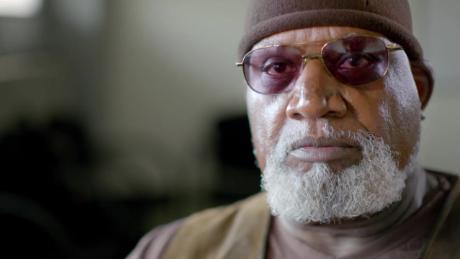The new CNN film"Citizen Ash"is a permanent tennis legend and humanitarian Arthur Ashe. Explore the heritage. It will be broadcast on Sunday, June 26th at 9:00 pm. ET / PT. Read moreOpinionson CNN.
(CNN)Arthur Ashe wasmuch moremore than a talented athlete on the tennis court: he was his In sports African Americans were active in the fight forto end apartheidin South Africa. He was also deeply involved in the campaign to blame AIDS. AIDS diedat the age of 49 in February 1993


CNN's Opinion Editor, Stephanie Griffith, interviewed Edwards about decades of friendship with Ash and the legacy of tennis greats as humanitarians and activists. This interview has been summarized and lightly edited for clarity.
CNN: Over time, Arthur Ashe became one of your close friends, but you were clearly not impressed by him at first. This movie shows off to his modest attitude and somewhat conservative personal style in the early days when he was a college student at UCLA and played professional tennis before you really knew him. It shows that it was done. What has changed the way you see him?
Edwards: Of course I knew him when I first approached Arthur Ashe in 1968. He is already a great tennis player and I knew him in my work as a sports scholar. But I didn't know Arthur Ashe personally.
I was sent off by him. But as I got to know him better, I found that, like many, I had a prejudice against him. I expected to know him soon.
CNN: And what did the real Arthur Ashe look like?
He protested against racism at home and abroad. He clearly saw the connection, but his commitment did not discourage him because of the trajectory and substance of the Black Power movement that was taking place at the time.
It took me a while to get everything in. But in the end, for years, I didn't have an ally, mentor, or companion as valuable as art. He called me from time to time in the middle of the night and talked to me.
Edwards: I think Arthur understood the environment he was in. He fought a battle that could be won on racial issues. But the problem of black men's participation (in tennis) was a bridge too far away.
There is a reason why there wasn't another black male tennis player of Arthur Ashe's height up to this point. Everything that happened in terms of creating progressive nature changes, including race in the United States, was a transaction.
In the field of social justice, nothing happens just because it is morally correct, constitutionally appropriate, or ethically correct. Arthur knew that. He and I talked about it-about being there literally alone throughout his career.
CNN: The same is true for black athletes in sports like golf, but in reality it wasn't very diverse.
Edwards: Of course. So once people were talking about how Tiger Woods would release this and it and other black golfers and more. I thought it was nonsense at the time.
There is no transaction leverage to bring it about. The white golf structure is very satisfying as it can point to Tiger Woods and one or two golfers further down the status and ranking chain. black. However, there is no black golfer's pipeline because there was a black pipeline going into basketball or a black pipeline going into soccer.
CNN: We talked about how emotions evolved over time in terms of understanding who Arthur Ashe is. But I think he has evolved over the years.
Edwards: Of course. I don't think Arthur has just become a devoted, courageous, and conscientious advocate. He became more activist in his last year. He was arrested in protest, even when he knew he was dying.
It wasn't part of his character in his early days. He was an advocate and sought a reason and a rational solution by reaching out beyond the barricade to not only his friends and those who agreed with him, but also those who did not agree with him. He believed in his reasonable argument with serious conviction. He believed that it was always best to reach out with his outstretched hand, not his fist.
But as he grew older, he became more convinced, I think, that the extremists had that virtue. And he started exhibiting it more-even until he was arrested in a demonstration later in his life.
Arthur digs deeper into who he is, what he is, what he supports, what he believes-and he has the courage to pursue it. Had a commitment, intelligence. And most people don't move on the basis of deep diving. They move on the basis of their first impression. But when he really got to know him, he realized he was one of the immortal members of the Pantheon in terms of sporting activities in the 20th century.
He is part of the athlete's Pantheon, who has influenced beyond the arena. Arthur is with them.


